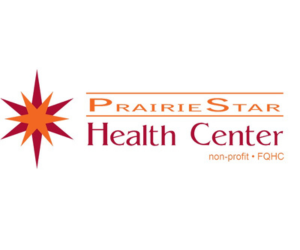By Tim Carpenter, Kansas Reflector
TOPEKA, Kan. — The Kansas Senate voted Thursday to prohibit use of telemedicine services to prescribe medications for inducing abortions and to forbid watering down the mandate during any disaster emergency declared by the state’s governor.
The bill, which passed with a two-thirds majority, now moves to the Kansas House of Representatives.
Senate Minority Leader Dinah Sykes, D-Lenexa, condemned the legislation, noting that Kansans voters in August rejected a proposed amendment that would have stripped the right to an abortion from the Kansas Constitution. Despite the landslide victory for supporters of abortion rights, she said, legislators are still proposing restrictions on abortion.
“They’re ignoring the will of Kansas voters who said loudly and clearly that attempts by politicians to insert themselves into these decisions are an unwanted overreach by our government,” Sykes said during the Senate’s final vote on the bill.
The strategy is to add contents of Senate Bill 5 to an anti-abortion statute on telehealth that has been temporarily enjoined since November 2022 by a Shawnee County District Court judge, but remains on the books. The Kansas Supreme Court is expected to take up the case in March.
Implementation of the Senate bill could add a fresh layer to legal disputes over telemedicine abortion in Kansas, which began in 2011 with challenge of a law requiring doctors to be present when patients were prescribed medication leading to an abortion.
“This is not forbidding chemical abortions through medication,” said Sen. Beverly Gossage, R-Eudora. “It’s only saying not through telemedicine because of the risks and dangers.”
Sen. Pat Pettey, D-Kansas City, said medication abortions were “extremely safe” and less risky than removal of wisdom teeth or a colonoscopy procedure. She said serious complications from an abortion induced with prescription medications occurred in less than .03% of patients.
Pettey said anti-abortion proponents sought the legislation in response to failure in August 2022 of an amendment to the Kansas Constitution that would have reversed a state Supreme Court decision in 2019. It guarenteed people bodily autonomy and by extension the right to end a pregnancy. The senator said Kansans opposed stripping abortion rights from the state constitution. Placing the bill into statute could lead to costly litigation, she said.
“What we are really talking about in this bill is that on August the 2nd there was a decisive vote in Kansas, where nearly 70% of Kansans said they did not want to ban access to female bodily autonomy,” Pettey said. “We’re wasting valuable legislative time, because the citizens support our constitution.”
The Senate on Thursday voted 27-12 on the bill introduced by Sen. Mark Steffen, R-Hutchinson.
Steffen responded to Pettey’s comments during Senate debate Wednesday by referencing a research paper on use of mifepristone for medical abortions from 2000 to 2019 in the United States. A summary was posted to PubMed, an online information library hosted by the National Institute of Health, but it was originally published in Issues in Law and Medicine during 2021.
The lead researcher on the study was retired physician Kathi Aultman, a frequent speaker at anti-abortion events such as the 2019 Washington, D.C., March for Life Rally. She’s also a member of the American Association of Prolife Obstetricians and Gynecologists.
“There were multiple deaths, like 20 deaths, associated with mifepristone,” Steffen said. “The whole point being deaths do result, severe bleeding does result. There are lots of complications associated with taking these abortifacient medications.”
Aultman’s report documented 20 fatalities, but the list included four from drug overdoses, three suspected homicides, one suicide and one death from unknown reasons. The researchers identified nine deaths from sepsis, one from hemorrhaging and one from an ectopic pregnancy.
Mifepristone is the drug most frequently prescribed for ending a pregnancy in Kansas. More than 90% of abortions in Kansas occurred within 12 weeks of gestation.
On Feb. 6, Kansas Attorney General Kris Kobach sent a letter to Walgreens pressing the company to not dispense the mifepristone from pharmacies in Kansas. Walgreens responded Feb. 17 to the attorney general by indicating it wouldn’t distribute the medication in its store pharmacies at this time.
Kobach forwarded a letter this week to CVS Health requesting the company likewise decline to distribute that drug in Kansas.
“The dispensing of these pills without a supervising physician present would expose women to complications and potentially to coercion as well,” Kobach said.

























































